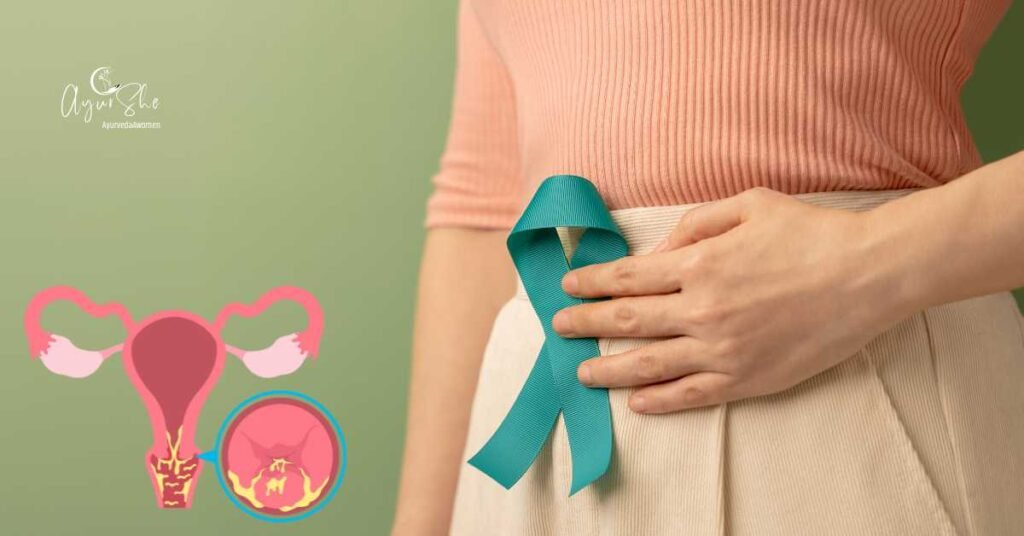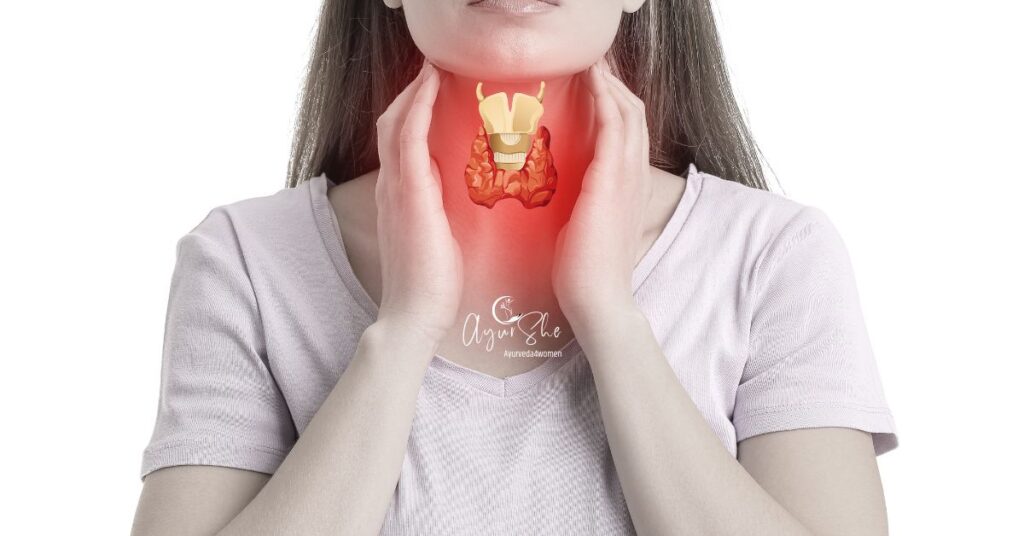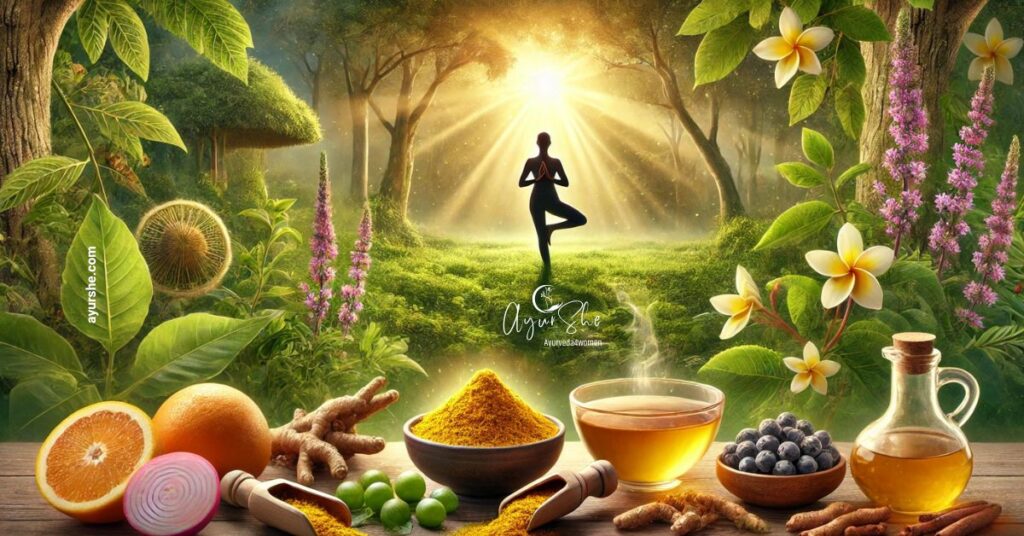Introduction
Breast cancer is the most common cancer among women worldwide, accounting for nearly 1 in 8 women during their lifetime. In India, it has overtaken cervical cancer as the leading cancer in women. Despite advances in diagnosis and treatment, breast cancer remains a major physical, emotional, and social challenge.
Modern science explains breast cancer through genetic, hormonal, and lifestyle factors, while Ayurveda views it as a Tridoshic imbalance with disturbed Rasa and Rakta Dhatus (plasma and blood tissues), leading to Arbuda (tumor formation). Ayurveda also emphasizes the role of Ojas (vitality), Agni (digestive fire), and emotional stability in cancer prevention and recovery.
This article provides an authentic Ayurvedic review correlated with modern oncology, focusing on prevention, supportive care, and integrative treatment.
I. Breast Cancer: Modern Perspective
🧬 Risk Factors
- Genetic: BRCA1, BRCA2 mutations
- Hormonal: Early menarche, late menopause, nulliparity, hormone replacement therapy
- Lifestyle: Obesity, alcohol, smoking, lack of exercise, high-fat diet
- Environmental: Radiation exposure, endocrine disruptors
🔎 Signs & Symptoms
- Breast lump (painless, hard, irregular)
- Change in breast size, shape, or skin texture
- Nipple retraction, discharge (especially bloody)
- Axillary lymph node swelling
🩺 Diagnosis
- Mammography and Ultrasound for screening
- Biopsy for confirmation
- MRI, CT, PET-CT for staging
⚠️ Staging
- Stage I–II: Localized disease
- Stage III: Locally advanced
- Stage IV: Metastatic disease
🎯 Modern Management
- Surgery (lumpectomy, mastectomy)
- Radiotherapy
- Chemotherapy
- Hormonal therapy (tamoxifen, aromatase inhibitors)
- Targeted therapy (Herceptin, PARP inhibitors)
II. Breast Cancer in Ayurveda
📖 Classical Correlation
- Arbuda described in Sushruta Samhita resembles tumors.
- Granthi (benign glandular swelling) may precede Arbuda.
- Stana Arbuda specifically refers to breast tumors.
⚖️ Dosha Involvement
- Kapha → promotes abnormal tissue growth, heaviness
- Vata → causes spread and irregularity
- Pitta → contributes to inflammation, ulceration, pain
🌀 Samprapti (Pathogenesis)
- Weak Agni → formation of Ama (toxins)
- Ama + vitiated doshas → blocks channels (srotas)
- Disturbance of Rasa and Rakta Dhatu → abnormal cell growth
- Chronicity leads to Arbuda (cancerous tumor)
III. Ayurvedic Goals in Cancer Care
- Prevention (Nidana Parivarjana) – avoiding causative factors
- Shamana – pacifying aggravated doshas
- Shodhana – detoxification through Panchakarma
- Rasayana – rejuvenation to restore Ojas and immunity
- Satvavajaya Chikitsa – emotional support and counseling
IV. Ayurvedic Remedies for Breast Cancer Support
(Not as standalone treatment but integrative care with modern oncology)
🌿 Herbs with Anti-Cancer and Rasayana Properties
| Herb | Benefits | Dosage & Usage |
|---|---|---|
| Guduchi (Tinospora cordifolia) | Immunomodulator, Rasayana | 500 mg capsule twice daily or 20 ml juice |
| Ashwagandha (Withania somnifera) | Reduces chemo side effects, improves energy | 1 tsp powder with milk at night |
| Turmeric (Haridra, Curcuma longa) | Curcumin – anti-inflammatory, anti-proliferative | 1/2 tsp powder with warm water, twice daily |
| Tulsi (Ocimum sanctum) | Antioxidant, radioprotective | 10–15 fresh leaves daily or tea |
| Kanchnar Guggulu | Reduces glandular swellings, Kapha disorders | 500 mg tablet twice daily |
| Amalaki (Emblica officinalis) | Rich in Vitamin C, Rasayana | 1–2 fresh fruits daily or 500 mg capsule |
🧪 Rasayana Therapies
- Chyawanprash – builds immunity and Ojas (1 tsp daily)
- Brahma Rasayana – supports mental well-being (1 tsp daily)
- Suvarnaprashana – in preventive care under supervision
🧘 Lifestyle & Diet (Pathya-Apathya)
- Ahara (Diet)
- Include: fresh fruits, vegetables, whole grains, ghee, green tea, turmeric, flaxseeds
- Avoid: red meat, fried food, alcohol, smoking, processed sugar
- Vihara (Lifestyle)
- Daily Yoga (gentle asanas: Shavasana, Pranayama)
- Stress reduction: Meditation, chanting, nature walks
- Adequate sleep – essential for Ojas preservation
🛀 Panchakarma Support
- Virechana – for Pitta disorders (under expert guidance)
- Basti – strengthens Apana Vata, improves immunity
- Abhyanga with medicated oils – improves circulation, reduces stress
V. Modern Science Supporting Ayurveda
- Curcumin (Turmeric): proven to inhibit breast cancer cell proliferation.
- Ashwagandha: reduces chemotherapy-induced fatigue and enhances resilience.
- Guduchi: improves immune response in cancer patients.
- Yoga & Meditation: studies show reduced stress, better tolerance of chemo, improved quality of life.
VI. Serious Notes & Red Flags
- Ayurveda cannot replace surgery, chemotherapy, or radiotherapy in breast cancer.
- Herbs must be used with caution to avoid drug-herb interactions.
- Any breast lump, nipple discharge, or skin changes should be immediately evaluated by an oncologist.
Conclusion
Breast cancer management requires a multidimensional approach. Modern medicine offers life-saving interventions, while Ayurveda provides strength, immunity, and emotional stability to endure the journey.
By combining modern oncology and Ayurvedic supportive care, women can achieve not only better survival but also improved quality of life, reduced side effects, and renewed emotional resilience.
Ayurveda emphasizes that true healing goes beyond the tumor—it restores balance, Ojas, and inner strength.




